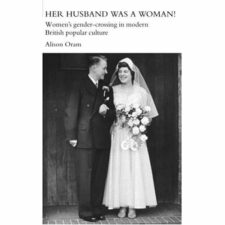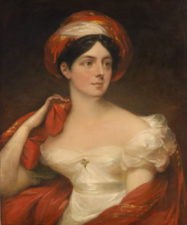In 1967, in a meeting room of leftists and radicals at the University of Kent, Di Parkin met her future life-long friend and comrade Lorraine Hewitt. The political connection that drew the two young women together was immediate: Di had joined the Young Socialists at the age of sixteen and thereafter until 1975 was a member of the International Socialists (now the Socialist Workers’ Party) which Lorraine also joined in the mid-1970s. The women’s shared politics established the foundations for a sustaining, mutually nurturing friendship that would endure for the next thirty-five years until Lorraine’s death from cancer in June 2002. For much of this period, from February 1973 Di and Lorraine enjoyed a correspondence; throughout the 1970s, Lorraine (Lol as Di referred to her) lived in Canterbury and Di in Oxford. The letters between the two women testified to a friendship rooted in their shared identities as revolutionary activists, as mothers, as women. Their lives integrated all these elements to foster a collective way of being that they instinctively felt only each other could truly understand.
In April 2009 I visited Di to interview her for my Ph. D. research on Britain’s left activist scene in the late 1960s and 1970s. I was interested in the individual and collective subjectivities of young activists who grew up within radical milieus in this left scene and who devoted their lives to grass-roots extra-parliamentary left politics. In what ways did revolutionary left cultures shape activist men and women’s past and present selves? Di provided rich insights into the questions I was pursuing.
What follows are selected extracts from some of the letters between Di and Lol. As a collection the correspondence illustrates the complex ways in which their internal identities of mothers, women and revolutionaries were woven together. Amidst the bustle of everyday life, of the pressures of balancing children, work, tight finances, and political activity, the letters between the two women sustained their revolutionary identities and their friendship, providing an internal, intimate outlet in which they both sought refuge and comfort.
With the birth of each of their children, activist life had to be interwoven and managed alongside the daily minutiae of motherhood. For Di, her identity as mother never diminished her enduring, deep sense of self as revolutionary so that after her daughter, Rosa (named after Rosa Luxemburg) was born, she wrote to Lol:
As for psychic assaults, I did a quick check over myself like they feel people for broken bones after accidents. Finding myself able to think about Gramsci and Trostkyist Tendency and the nature of scientific objectivity, I concluded that I still existed. Feeling by bedtime fit enough to leaflet several council estates concludes the story of health (5 December, 1971).
After the breakdown of Di’s marriage and her move from Canterbury to Oxford the responsibility of being a lone parent presented a wealth of practical and psychological trials, but in spite of her physical separation from Lol and the aid of the ‘mother’s commune’ they had established with other women to allow members time for political activity, free time for themselves and their occasional lovers, Di’s letters to Lol reveal her finding renewed strength in her politics and in the letters she began to write in earnest to her revolutionary friend:
I grow mawkish. The honest picture is that – without another parent – the responsibility of motherhood is enormous. I am a mother. I say this not defeatedly, as I once did (for I am more certainly a revolutionary than ever) but somehow this fact used to escape me … I am actually also at times very happy just now sitting on the floor, eating muesli at an odd hour, listening to Janis Joplin and reading my big picture book on Trotsky – alone you understand. The liberation is huge … I am myself (Spring, 1973).
As the correspondence progressed over the following months and years the letters highlight the psychological strength their mutual bond brought to Di and Lol, as they shared with each other their political activities, children’s progress as well as their innermost thoughts and feelings on themselves in relation to local and international events:
I’m feeling very martyr like – sniffing under a cold caught standing at a building site with SW [Socialist Worker] and being insulted by pig chauvinists. What a life … Rosa is shouting to get out of her rocking horse. She gets more determined every day (Di to Lorraine, early 1973).
Found myself mumbling messages to you in my mind and didn’t want them to seep away in that ragbaggy place – get twisted up with all the tomorrow’s shopping, plans for changing the world etc … Well – I always feel my letters are Reports from this Front of Life’s Struggle … Anyway you are one mother confessor, you are soul mate and I have to expose myself to you’ (Di to Lorraine, 17 May, 1973).
In the summer of 1975 Lorraine’s news to Di that she had re-established contact with the International Socialist group in Canterbury led her to reflect on the way in which her humanitarian socialist conscience shaped her way of being in the world.
On Monday I leafleted the Durham Close Estate with the very good SW [Socialist Worker] race leaflets … But it is finding the time to get the opportunity – a real hassle to find someone to do an hour’s baby-sitting … Just must do something against this tide of filth … I am aware that my private life has a desperate quality – even my enjoyment, my laughter, because all our lives are lived under that Shadow. So I have always thought the most one could hope for is the intermittent delight and the struggle to live rightly (Lol to Di, Summer, 1975).
The brief selected extracts presented here from Di and Lol’s correspondence provide barely a glimpse into a female friendship that helped each woman to sustain her revolutionary identity in the face of domestic and psychological obstacles. For Di and Lol the political was deeply personal. Resolute conviction in their agency as social actors to eradicate injustice continued to shape their later lives. Di carried her activism on into the Labour Party until 1986 before supporting Kurdish and recently Palestinian solidarity movements. Campaigning against the social welfare cuts of the 1980s, Lol was also a drugs adviser and active against the Iraq war. The personal outlet Di and Lol found in their letters to one another during their years of revolutionary activity supports the valid claim to space for individual subjects within studies of political and social movements. They help us to understand how the revolutionary groups of the 1970s shaped and gave meaning to these women’s lives and the way in which they saw themselves in the world.
Celia Hughes is a 3rd-year Ph.D. student in the History department, Warwick University. Her thesis title is ‘The socio-cultural milieus of Britain’s post-war left’. She loves 20th century biographical historical studies and her cat Ethel.

